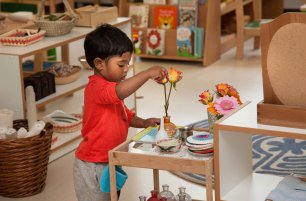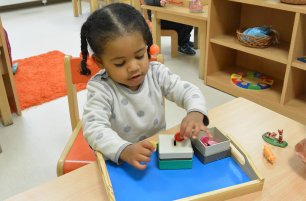Mones
Sorry, this article is only in Czech.

Toddlers need hands-on experience with life skills in real purposeful ways.
Read more
Please welcome this week’s guest to the IMSP podcast – Krishna Ramani!
Read more
Radka Dohnalova, a parent of three IMSP children, has been researching the future of education in this world. She has summarized her findings in the article below, which was also recently published. Radka wanted to share the results with the IMSP community when her research revealed how Montessori education aligns with where the future of education is heading.
Read more
Every morning, with any luck, a very enthusiastic and volume‑charged toddler and I make the 45 min…
Read more
We have all had our fair share of complaining about the situation we have found ourselves in since last Spring, but in this article, I wanted to concentrate on the positives this has brought to us.
Read more